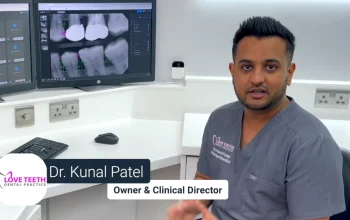Dental bonding is a procedure that covers imperfections in teeth. It doesn’t fix underlying problems, but it can improve the appearance of the smile and help a person feel more confident about their smile. A composite resin is used as the material, which hardens when a special light is shined on it. After it has been shaped and molded to the specific defect, the material is then polished to be smooth and natural-looking.
In order to apply the composite resin, the dentist must first prepare the tooth’s surface so that the resin will adhere better. Next, the dentist will add the resin and mold it to fit the tooth. This process can take a few sessions, especially if the patient needs multiple teeth treated. However, a top-notch dental bonding service will be able to deliver the results you desire in the least amount of time. Once the procedure is complete, you’ll be amazed at how beautiful and natural your teeth look.
While dental bonding is a great way to improve your smile, you still have to take care of the newly-restored tooth. You should avoid hard foods and gum products that can damage the bond. Additionally, don’t smoke or drink coffee or tea. The resin will break down over time and may require touch-ups. However, if you are a smoker, it is important to stop using cigarettes and drinking coffee. Both of these habits can cause the resin to break and damage the rest of the teeth.
Dental bonding is a safe, low-risk procedure that can improve the appearance of your teeth and prevent further damage. Because the plastic resin used in dental bonding isn’t as strong as natural tooth enamel, it is prone to staining, chipping, and breaking. But it still produces a beautiful smile. This procedure costs around $300 to $600 per tooth. It can last anywhere from five to fifteen years, depending on the severity of the damage and the care you follow.
If you’re looking for a quick and affordable solution to a cosmetic problem, dental bonding may be the perfect solution. Unlike veneers, this procedure is relatively inexpensive and only requires one visit. Another benefit of dental bonding is its long-lasting results. The bonding material is meant to last for several years, but it is susceptible to staining. Porcelain veneers, on the other hand, won’t stain and will remain the same color for a lifetime. Porcelain veneers are permanent, but more expensive than dental bonding.
After dental bonding, aftercare is minimal. You should brush your teeth twice daily and floss once a day, go to your routine dental visits two times a year, and avoid sticky food and dark drinks. You should also avoid hard candy and other items that could damage your teeth. This way, the bonding will last longer and be more resistant to damage. You should avoid smoking and drinking alcohol after dental bonding to keep your smile bright.




